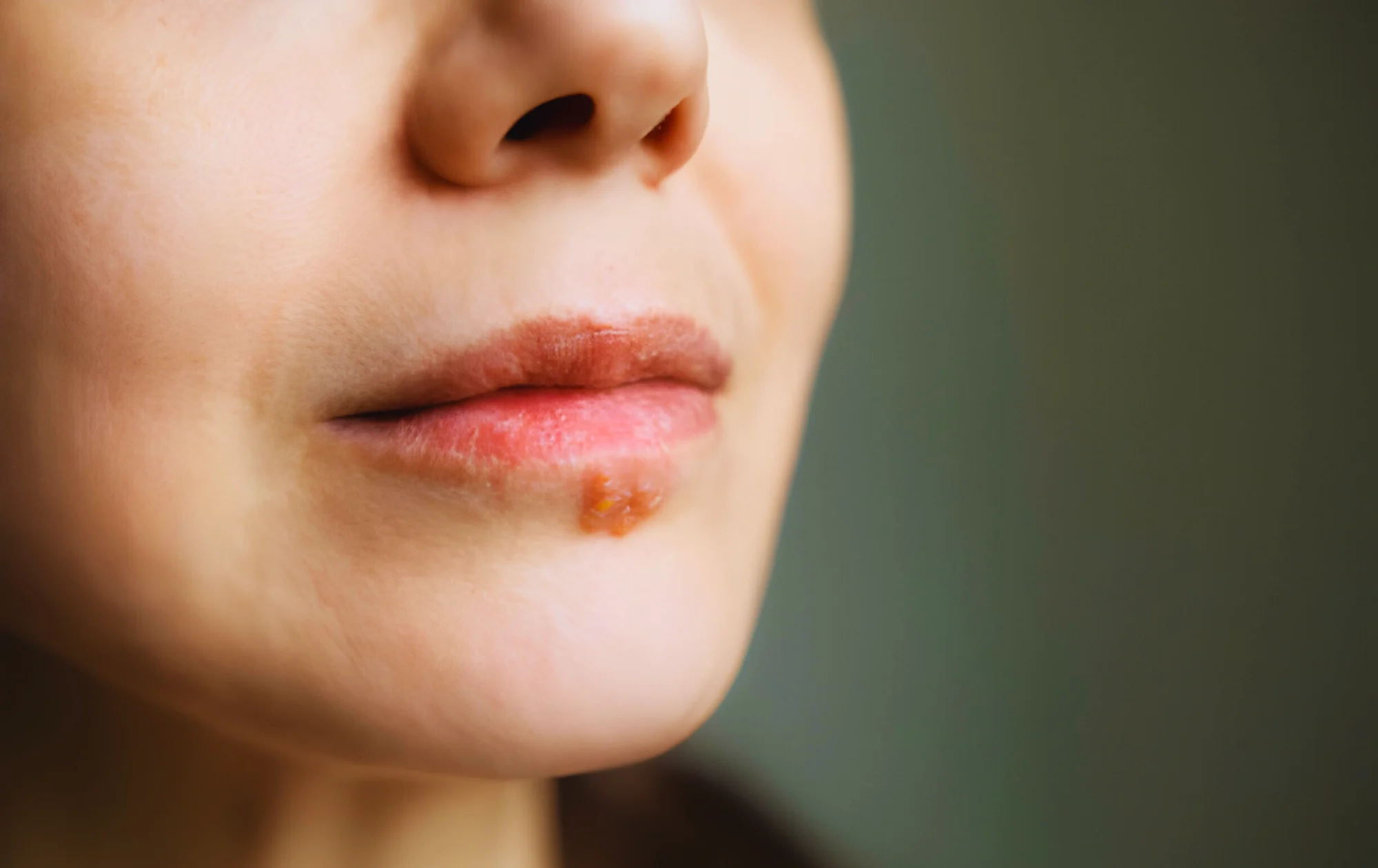Understand the non-STD herpes while you may be familiar with herpes as an STI, there is more to its story. One can have herpes without having sex. This virus finds its way to spread somehow uniquely, such as through normal skin contact or even from a mother to her child during birth. This article will explore the less-known facts about herpes, its symptoms, and treatment options. Additionally, we will also discuss how exactly to avoid getting it.
What Is Herpes?
Herpes is a widespread virus leading to sores in the mouth or genitals. While it can be bothersome and painful, it typically doesn’t cause severe health issues.

There are two types of herpes simplex virus:
HSV-1 mostly causes cold sores or fever blisters on the face or mouth. HSV-2 usually leads to genital herpes, causing sores on or near the genitals, anus, buttocks, and inner thighs. These sores can also appear inside the vagina.
A large number of Americans, between 50 to 80 percent, have oral herpes. Genital herpes affects about 1 in every 6 Americans. It’s more common in women than in men. Chances are, you might know someone who has herpes.
Also Check: Healthy Sex Life: 8 Ways To Increase The Sperm Count And Boost Male Fertility
Symptoms Of Herpes
Herpes symptoms can vary. Not everyone with HSV shows symptoms. Symptoms depend on if it’s your first time or a repeat infection. First-time herpes symptoms can appear a few days to weeks after catching the virus. These symptoms can include:
- Fever
- Swollen lymph nodes
- Body aches and headache
- Feeling very tired
- Not wanting to eat
- Pain where the infection is
- Tingling, burning, or itching before blisters appear
Blisters can be single or a few together. They hurt, burst, and then heal. These blisters can take up to 6 weeks to heal. They can spread the virus until it is fully healed. Sores can itch. Sores in genital areas can hurt when you pee.
Herpes Transmission
Sexual intimacy is not the only means through which herpes spreads. You can catch herpes through close skin contact. This can happen during kissing or when you touch mouths or private parts during sex.
You can get herpes without having sex. Kissing someone with a cold sore can give you oral herpes. Herpes can infect easily through thin skin, like in your mouth or private areas. It can also get in through cuts or sores.
It spreads in non-sexual ways, like from a parent’s kiss. Touching a herpes sore and touching another part of your body can spread it there.
Herpes spreads easily when sores are wet. But it can also spread when there are no sores and everything looks normal. Many people get herpes from someone with no sores. The virus can hide in your body for years. You can’t catch herpes from hugs, handshakes, coughing, or sitting on toilet seats because the virus doesn’t live long outside the body.
Sexual Transmission
Herpes spreads mainly through sex. This includes vaginal, anal, and oral sex. People with herpes can pass it to others. Being safe and talking about it helps.
Non-Sexual Transmission
Herpes can also spread without sex. Touching herpes sores can pass the virus. Using someone’s towel or razor can, too. Even touching surfaces with the virus can spread it.
Knowing all the ways herpes spreads is important. This helps you make good choices and stop the virus from spreading. Remember, it’s not just about sex. Everyday things can spread herpes, too.
Neonatal Herpes Transmission
Maternal transmission means a mother can pass herpes to her baby. It’s important to prevent this during pregnancy. When a baby is born, it can catch herpes from the mother if she has a herpes outbreak. This is dangerous for the baby and can cause serious problems.
Mothers with herpes should see their doctors to keep the baby safe. Doctors might give the mother medicine for herpes during pregnancy. If the mother has sores during birth, doctors might do a C-section to protect the baby.
Mothers and doctors should work together to ensure the baby is born healthy. This means going to all doctor visits and talking about any herpes concerns.
Treatment of Herpes
There’s no cure for herpes, but there are medicines that help with the symptoms. You can buy creams for cold sores without a prescription. For sores in private areas, doctors prescribe medicines like acyclovir or valacyclovir. These can make symptoms less severe, help sores heal faster, and make outbreaks happen less often. They also lower the risk of giving herpes to someone else.
Sometimes, doctors give medicine before events like childbirth to prevent flare-ups.
Researchers are working on a vaccine to stop the spread of herpes. If you think you might have herpes, either in your mouth or private parts, see a doctor to get the right treatment.
Tips To Avoid Getting Herpes
To avoid catching herpes, do these simple things: Wash your hands a lot. This keeps you healthy.
- Condoms and dental dams for safe sex. Clean sex toys after every use and with every new partner.
- Talk to new partners about their sexual health before you get close.
- Look out for sores or blisters on yourself and your partner get tested for STDs often, especially if you or your partner see other people, you start seeing someone new, or you might be at higher risk for STDs.
- If you have herpes, don’t touch your sores. If you do, wash your hands right away. Don’t kiss or be intimate if you or your partner have sores until completely healed.
Read More: Does Pomegranate Actually Boost Testosterone? Top Pomegranate Benefits For Men
Conclusion
Herpes is not just a standard sexually transmitted infection. Its impact goes far beyond sexual encounters. Herpes highlights the importance of awareness and prevention in our lives. This includes kissing and a mother touching her child at birth. There is still no known cure.
However, effective treatments and simple preventive measures can manage and reduce its effects. Always remember that open conversations, frequent checkups, and basic vigilance are crucial for herpes. Understanding how it can be transmitted in many ways will help us make smart health decisions.

